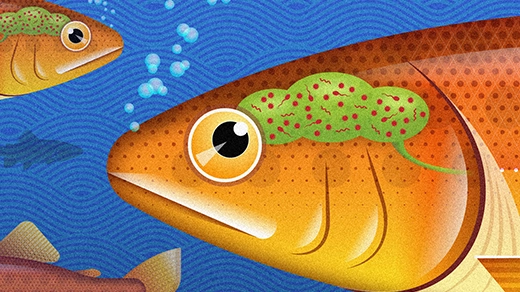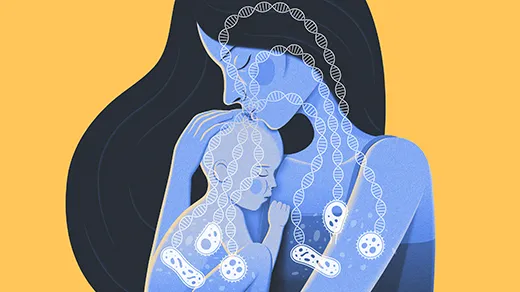What's up in
Microbiome
Latest Articles
Fish Have a Brain Microbiome. Could Humans Have One Too?
The discovery that other vertebrates have healthy, microbial brains is fueling the still controversial possibility that we might have them as well.
What Does Milk Do for Babies?
Human nutrition begins with milk, but the wondrous biofluid does much more than feed babies. In this episode, co-host Steven Strogatz speaks with molecular nutritionist Elizabeth Johnson about her research into the impact of human milk on a healthy microbiome.
The Year in Biology
In a year packed with fascinating discoveries, biologists pushed the limits of synthetic life, probed how organisms keep time, and refined theories about consciousness and emotional health.
In the Gut’s ‘Second Brain,’ Key Agents of Health Emerge
Sitting alongside the neurons in your enteric nervous system are underappreciated glial cells, which play key roles in digestion and disease that scientists are only just starting to understand.
Global Microbiome Study Gives New View of Shared Health Risks
The most comprehensive survey of how we share our microbiomes suggests a new way of thinking about the risks of developing some diseases that aren’t usually considered contagious.
Mobile Genes From the Mother Shape the Baby’s Microbiome
Tiny genetic sequences in a mother’s bacteria seem to hop into the infant's bacteria, perhaps ensuring a healthy microbiome later in life.
She Finds Keys to Ecology in Cells That Steal From Others
The ecologist Holly Moeller studies microorganisms that expand their range by absorbing organelles and gaining new metabolic talents from their prey.
The Gut Microbiome Helps Social Skills Develop in the Brain
New research in fish suggests that gut microbes can have a crucial early influence on the brain’s social development.
The Year in Biology
While the study of the SARS-CoV-2 virus was the most urgent priority, biologists also learned more about how brains process information, how to define individuality and why sleep deprivation kills.








